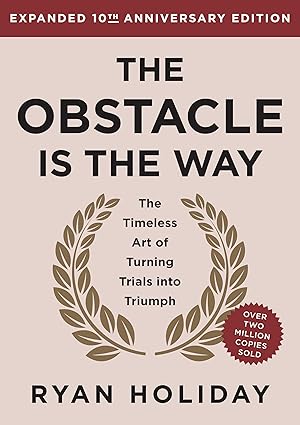Siblings of Legacy: The Dual Forces of Generational Corruption and Generational Curses.
Understanding Generational Corruption and Curses, The Legacy Weight and Its Inherited Burden.
What if the chains binding you aren’t entirely your own? Imagine carrying the unresolved pain, failures, or even sins of those who came before you, patterns so deeply ingrained they feel like destiny. This is the reality of generational corruption and generational curses: two sides of the same coin, Siblings of Legacy, representing an inherited burden that can adversely affect individuals across multiple generations. These invisible forces echo through time, shaping lives long after their origins fade into history. But here’s the good news, you don’t have to remain trapped. Understanding these legacies is the first step toward breaking free.
The Nature of Inherited Burdens
Generational Corruption: This pertains to cycles of acquired behaviors, detrimental patterns, or systemic problems that persist across generations. Examples include a family’s history of abuse, financial irresponsibility, or normalized prejudice. This concept highlights systemic issues that perpetuate cycles of dysfunction.
Generational Curses: These often refer to spiritual or emotional afflictions passed down through familial lines. It is Rooted in spiritual or cultural beliefs, this term often describes a perceived inherited misfortune, often tied to unresolved conflicts, broken promises, or unethical actions from previous generations. These curses are less about direct behavior and more about overarching patterns of adversity.
Spotting the Signs: How They Show Up in Real Life. Generational corruption and curses don’t always announce themselves. They are frequently discreet, integrated into daily life. Here’s how they may manifest:
Generational Curses Examples
- Unexplained Adversity: Families experiencing repeated financial collapses despite hard work.
- Health Issues: Recurring illnesses with no clear genetic link.
- Unsolved Mysteries: Stories of misfortune tied to ancestral wrongdoings.
- Mental Health Challenges: Issues like anxiety or depression may stem from unresolved trauma within families.
- Relational Difficulties: Unhealthy relationship patterns can be inherited, leading to trust issues and emotional struggles.
Generational Corruption Examples
- Standardized Bias: The systematic error affecting research validity manifests as cultural, selection, or performance bias, distorting both outcomes and interpretations.
- Political Corruption: Normalized dishonesty within political systems can erode trust in institutions.
- Economic Inequality: Corruption can create barriers to opportunity, trapping generations in poverty.
- Social Injustice: Systems that perpetuate inequality can lead to internalized feelings of inferiority among affected groups.
Why Do These Patterns Persist?
Generational patterns are like rivers, once they carve a path, they flow with ease. Here’s why these legacies often continue:
1. Cultural Beliefs: In cultures that embrace the concept of generational curses, such beliefs can become self-fulfilling prophecies.
2. Social Conditioning: Children learn what they experience . A child raised in a home with financial irresponsibility and a corrupt system may see that as normal.
3. Unresolved Trauma: Painful events leave emotional scars, which can ripple through generations when not addressed.
4. Lack of Awareness: Many families simply don’t realize they’re perpetuating cycles. It feels like “the way things are.”d interpretations.
Social Consequences
Communities affected by generational corruption and Curses may experience:
Distrust in Institutions: Disillusionment with systems meant to protect them can lead to disengagement from civic life.
Cycle of Violence: In environments where violence is prevalent, children may view it as an acceptable conflict resolution method.
The Negative Impact On Future Generations
If left unaddressed, the issues stemming from generational curses or corruption can haunt subsequent generations. This haunting may manifest as distrust, cynicism, inherited fears, or trauma. The emotional and psychological effects can be profound:
Anxiety and Depression: Unresolved family issues or societal injustices can lead to significant mental health struggles.
Low Self-Esteem: Toxic environments may foster poor self-image in children.
Fear of Repetition: Individuals may fear repeating their family’s mistakes, causing anxiety about their choices.
Breaking Free From This Cycle: Can We Change the Narrative?
Absolutely. While generational corruption and curses may feel overwhelming, they are not unchangeable. Recognizing these inherited burdens is essential for healing. Tackling the foundational systemic problems and implementing reforms enables individuals and societies to dismantle these chains. Acknowledging the existence of generational corruption and curses is the first step toward liberation. Here’s how to take proactive steps:
1. Lean on Faith or Spiritual Practices:
Many find strength in prayer, meditation, or community support to release burdens tied to past generations.
2. Acknowledge the Patterns: Reflect on your family’s history. Identify recurring themes, behaviors, or adversities. Talk openly with family members about shared struggles in the communities.
3. Educate Yourself: Seek knowledge about emotional health, financial literacy, or cultural history to understand the root causes of corruption and curses. Read books or listen to podcasts about breaking generational cycles.
4. Therapy and Counseling: Individual therapy can help you process personal and inherited trauma.
Family therapy can address systemic issues within your household.
5. Build New Traditions: Replace toxic patterns with healthier alternatives. For example:
Create a “gratitude jar” to foster positivity. Hold monthly financial check-ins to improve money habits.
6. Maintaining Law and Order: A strong legal framework, such as Singapore’s Public Order Act, is crucial for preventing disruptions to social harmony and ensuring economic survival. It is essential for creating a safe environment that promotes economic development and social stability.
Conclusion: The Ripple Effect of Change
Breaking generational patterns isn’t just about you, it’s about the future. When you interrupt harmful cycles, you’re creating a better legacy for your children and their children. You’re proving that change is possible.
Join the Conversation:
Have you noticed generational patterns (corruption and curses) in your family?
How have you worked to break free from them?
Share your thoughts in the comments below.
Let’s create a community of support and empowerment.
And don’t forget to follow us on social media channels for more articles and insights.
Together, we can rewrite the stories of our legacies.





Very informative article regarding courses and corruption that are inherited through generations . The key is getting to know the root of evil and attacking it with powerful persistent prayers and actions according to the word of God.
yes very true.